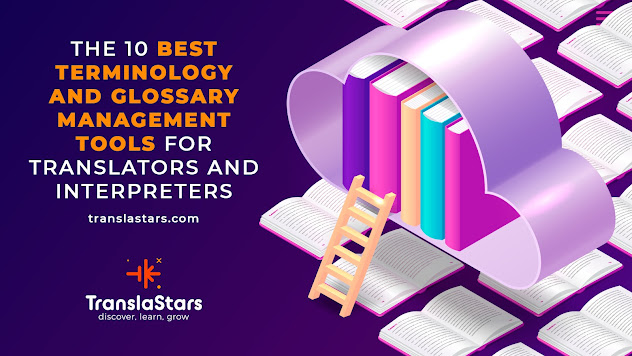5 best free online dictionaries and termbases for translators - 2022 version
5 best free online dictionaries and termbases -
2022 version
"If you claim to be such a good translator, then why do you need to consult a dictionary?"
Sounds familiar, right? And yet, it’s not often you hear people questioning a doctor’s expertise as they reach for their copy of Gray’s Anatomy.
Far from serving as a crutch, these tools play a crucial role in ensuring a translation is both accurate and fit for purpose.
At TranslaStars, we’re fully aware that behind every great target text is a vast array of terminology resources. That’s why we’ve compiled this list of the top five free online dictionaries and termbases for translators and linguists.
Table of contents:
1. InterActive Terminology for Europe
2. ProZ
3. TERMITE
4. Linguee
5. WordReference
1. InterActive Terminology for Europe
IATE may not strictly be a dictionary, but with close to a million entries we just couldn’t leave it off the list.
The EU’s open source terminology database covers all 24 official languages and is particularly useful when it comes to translating technical texts. Not only does it enable you to filter your search by language specialization, there’s also an option to connect it to your CAT tool as a standard termbase.
And just when you thought it couldn’t get any better, sample sentences and translation notes are provided with each and every entry for context.
Though this handy resource may not suit all specializations, it’s certainly a simple and cost-effective way of ensuring terminological consistency across all your translation projects.
PRO TIP: Speaking of CAT tools, how about learning how to use Trados Studio 2021, the world's leading CAT tool, to enhance your translation's quality? This is the course for you:
2. ProZ
The ProZ term search tool is one of our go-to resources at TranslaStars. It covers pretty much every language on the planet and is continuously updated by the global translation community.
However, this ever-expanding termbase goes far further than simply translating words and phrases from one language to another.
All the terminology is separated into specific categories, and the entries themselves are almost always given in the relevant sentence and context. Since almost all of these entries are from professional translators, it’s the ideal choice for those starting out in the industry as it offers a sense of support.
It’s also worth bearing in mind that you can post your own terminology queries via the KudoZ help network, which is a great way to make connections in the industry. After all, you never know where something as simple as a terminology query might lead!
3. TERMITE
There’s no denying that recent world events have kicked the digital transformation into high gear. That’s why including this sector-specific termbase in the TranslaStars top five was an absolute no-brainer.
With around 60,000 entries, the Telecommunication Terminology Database from the International Telecommunication Union is quite literally a treasure trove of information and communication technology vocabulary.
We know it may not be the most extensive termbase out there, but it certainly makes for a great starting point when establishing common ground with new clients in tech and digital.
Unfortunately, it’s only available in English, French, and Spanish, although some terms do include Italian, German and Portuguese translations.
4. Linguee
There are a lot of purists in the language industry who shudder at the very mention of this popular online dictionary.
But while it may not be the most reliable tool out there, the TranslaStars team certainly think it serves a purpose. In simple terms, the site offers various translations for each word or phrase, and then numerous examples from real online sources.
The issue is that not all of the entries aren’t necessarily verified. Why’s verification so important? Well, it sometimes means you can end up with a translation that isn’t completely accurate or doesn’t fit your purposes. That said, it can help you wrap your head around what seems like nonsensical colloquialisms in seconds.
It may not give you an exact match but the wealth of examples provided will certainly help you piece together that tricky sentence or phrase.
Want our advice? Ignore the purists and keep this handy reference tool in your terminological arsenal.
PRO TIP: Do you often find several possible translations and find yourself unsure of which term is the best one to use? Not sure how to check if that really is the right/best term? Signing up for this course is guaranteed to set you on the right path.
Thanks to Lucy Makepeace, Legal Translation Specialist, you will:
- Get to grips with terminology research in order to ensure high-quality translations
- Learn where to look for the most accurate and appropriate translations of complex terms when dealing with specialized translations
- Discover the best terminology resources and tools for translating official documents for international organizations, such as the EU and the UN
- Develop a terminology management plan to make your translation process more efficient and your translations more consistent.
Enroll here!
Are you an Italian-speaking translator? You might enjoy Serena Tutino's terminology course, "Una rete di possibilità: ricerche terminologiche per traduttori"!
Enroll here!
5. WordReference
We’re talking about several of those huge, backbreaking bilingual dictionaries in an online format. Not only does it include verb conjugations, definitions, synonyms, phonetic spelling, and pronunciation, but there’s also a forum for language learners and linguists to post queries.
What’s the downside? Well for starters, the site doesn’t attract quite the same caliber of translation professionals as, for example, ProZ. However, it is frequented by native speakers from across the globe, who are an undeniably reliable source of vocabulary-related information.
PRO TIP: Do you dream of translating official documents for European and international organizations?
TranslaStars CEO, Alfonso González, has created the ProD+T Translation of European and International Standards (English-Spanish)!


.jpg)
.jpg)
.jpg)
.jpg)



Comments
Post a Comment